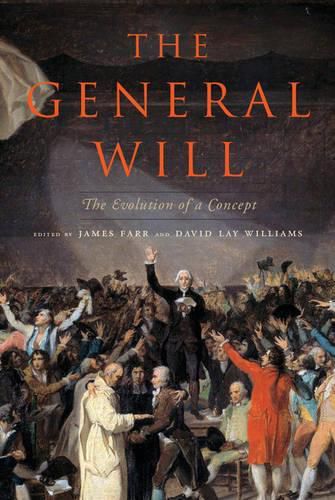Readings Newsletter
Become a Readings Member to make your shopping experience even easier.
Sign in or sign up for free!
You’re not far away from qualifying for FREE standard shipping within Australia
You’ve qualified for FREE standard shipping within Australia
The cart is loading…






Although it originated in theological debates, the general will ultimately became one of the most celebrated and denigrated concepts emerging from early modern political thought. Jean-Jacques Rousseau made it the central element of his political theory, and it took on a life of its own during the French Revolution, before being subjected to generations of embrace or opprobrium. James Farr and David Lay Williams have collected for the first time a set of essays that track the evolving history of the general will from its origins to recent times. The General Will: The Evolution of a Concept discusses the general will’s theological, political, formal, and substantive dimensions with a careful eye toward the concept’s virtues and limitations as understood by its expositors and critics, among them Arnauld, Pascal, Malebranche, Leibniz, Locke, Spinoza, Montesquieu, Kant, Constant, Tocqueville, Adam Smith and John Rawls.
$9.00 standard shipping within Australia
FREE standard shipping within Australia for orders over $100.00
Express & International shipping calculated at checkout
Although it originated in theological debates, the general will ultimately became one of the most celebrated and denigrated concepts emerging from early modern political thought. Jean-Jacques Rousseau made it the central element of his political theory, and it took on a life of its own during the French Revolution, before being subjected to generations of embrace or opprobrium. James Farr and David Lay Williams have collected for the first time a set of essays that track the evolving history of the general will from its origins to recent times. The General Will: The Evolution of a Concept discusses the general will’s theological, political, formal, and substantive dimensions with a careful eye toward the concept’s virtues and limitations as understood by its expositors and critics, among them Arnauld, Pascal, Malebranche, Leibniz, Locke, Spinoza, Montesquieu, Kant, Constant, Tocqueville, Adam Smith and John Rawls.